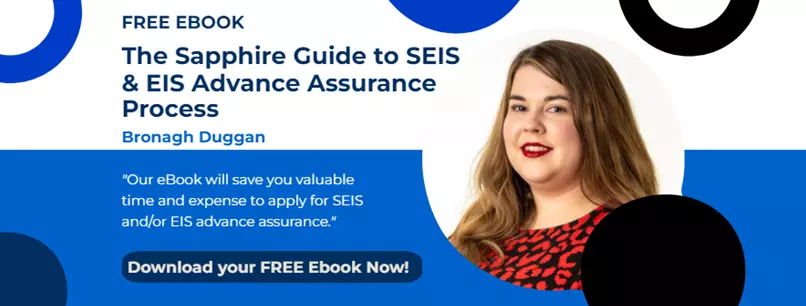The Enterprise Investment Scheme (EIS) has consistently been a beacon of hope for companies seeking early stage financing. Central to the scheme is the Financial Health Requirement (FHR) under the Finance Act 2017 that stipulates an enterprise must be in good financial standing in order to qualify for certain financial benefits, such as tax reliefs or incentives. It primarily aims to ensure that insolvent or financially unstable enterprises cannot raise further investment via SEIS or EIS, which could put investors at greater risk of losses.
Understanding the Financial Health Requirement
The FHR, as anchored in the Finance (No.2) Act 2017, section 257MIA, outlines that an enterprise or company must be financially sound from the outset. The term "in difficulty" is defined in the Community Guidelines on State Aid for Rescuing and Restructuring Firms in Difficulty (2004/C 244/02). As mentioned prior, it is important to note that the legislation’s aim is to prevent insolvent companies from obtaining further investment and protecting investors.
The relevant issuing company must meet the financial health requirement from the date the shares are issued.
Indicators of companies “in difficulty”
HMRC views a company as 'in difficulty' primarily through the lens of the Insolvency Act 1986. Section 267 and 268 illustrate useful scenarios where an enterprise is financially strapped, including instances where liabilities surpass the value of assets, subject to contingent and prospective liabilities or the "balance sheet test", and when a creditor forwards a bankruptcy petition.
Furthermore, under the Act, a company is considered insolvent if a creditor who is owed more than £750, issues a 'statutory demand' and, after three weeks, hasn’t been remunerated or hasn't reached a payment arrangement with the company. Another alarming sign that is important to be aware of is if a creditor has secured a judgement against the company, made efforts to execute the judgement, yet the debt remains unsettled, either partially or fully.
Recent clarifications and the "Knowledge Intensive" companies
On 9th December 2022 an update from HMRC shed more light on the Financial Health Requirement, specifically for supporting 'knowledge intensive' companies. These companies are deemed knowledge intensive at the advance assurance application stage, as they meet certain thresholds with relation to research and development activities. Knowledge intensive companies have an extended initial investing period of ten years, as compared to the seven years for others.This extended period effectively provides companies qualifying as knowledge intensive more time to get their finances in order and align with the EIS's Financial Health Requirement than others.
While EIS offers a promising avenue for companies to bolster their finances, the onus remains on these firms to ensure they stand firm on the Financial Health Requirement and safeguarding investors' interests to gain the various benefits from the scheme. It also ensures that companies stay more cautious with the outflow of funds especially during the early years where issues surrounding liquidity, debt can arise.
Sapphire Capital Partners LLP is authorised and regulated by the Financial Conduct Authority (FRN: 565716). This article is a financial promotion and is intended for UK investors only. The content is for information purposes only and does not constitute investment advice or a recommendation to invest. SEIS and EIS tax reliefs depend on individual circumstances and may change. The value of investments may go down as well as up, and investors may not get back the full amount invested. Past performance is not a reliable indicator of future performance. Investment outcomes can differ substantially, potentially resulting in the loss of all your capital invested. Shares in early-stage companies are illiquid: you may be unable to sell your holding for several years, if at all. Investors should not rely on this article as a basis for investment decisions and must consider the illiquid and high-risk nature of early-stage investing. No warranty as to future outcome is implied nor should one be inferred. Tax treatment depends on individual circumstances and may be subject to change. Investments of this type are generally not covered by the Financial Services Compensation Scheme or the Financial Ombudsman Service if the underlying companies fail.
Bibliography
Finance (No. 2) Act 2017.257MI [online] Available at: https://www.legislation.gov.uk/ukpga/2017/32/schedule/1/part/1/crossheading/financial-health-requirement/ni.
Insolvency Act 1986.267 [online] Available at: https://www.legislation.gov.uk/ukpga/1986/45/section/267.
Insolvency Act 1986.268 [online] Available at: https://www.legislation.gov.uk/ukpga/1986/45/section/267.
www.gov.uk. (n.d.). VCM31140 - SEIS: income tax relief: introduction: periods A and B - HMRC internal manual - GOV.UK. [online] Available at: https://www.gov.uk/hmrc-internal-manuals/venture-capital-schemes-manual/vcm31140.


